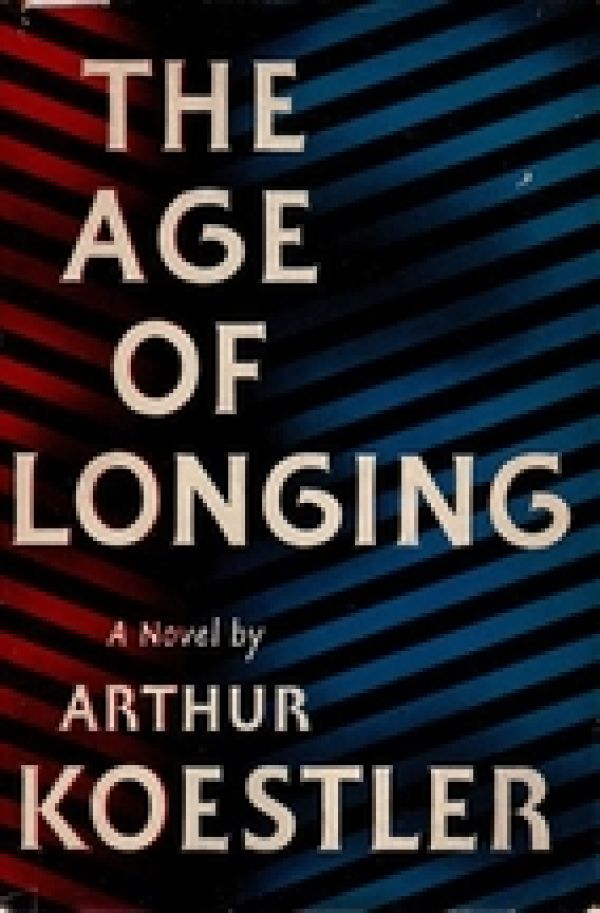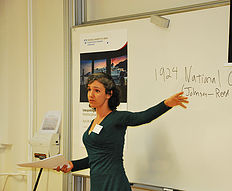Projects
Sites and Channels of Contact Within and Across Borders: Languages, Narratives and Representations (EHP-CZ-MOP-2-022)
August 2020 – August 2021 [prolonged until August 2022]
Project Co-ordinator: Zénó Vernyik
The present project is a means of broadening and intensifying the cooperation of The Technical University of Liberec (and especially its Borders and Migration Research Group) and the University of Tromso/The Arctic University of Norway (and especially its Just Literature Research Group, with further co-operation with its Border Poetics Research Group, with the central aim to exchange theoretical knowledge, practical know-how and best practices in researching and teaching about borders, migration, justice, social and political conflict and multilingualism. Following up on the success of the projects "CZ09 7F16020 - Migration: Sociopsychological and Cultural Factors" and "EHP-CZ-MOP-1-008 - Borders and Migration: Approaches and Methods in Research and Teaching" and complementing the two universities' successful mobility in the Erasmus+ framework, the project provides inter-institutional mobility for 12 people: 6 members of staff from both institutions.
In the project period, both of the two institutions welcome 6 members from their partners, with the aim to exchange research methods in border, migration and justice studies, language acquisition and attrition, discuss theoretical and practical aspects of teaching topics related to social, political, linguistic, psychological and environmental factors of migration, injustice and political as well as social conflicts, and aid curriculum and program development in these areas. These rather theoretical areas of focus are complemented by the practical testing environment of 4 teaching hours (i.e. 4x45 minutes) of teaching per person per week, peer-feedback and job shadowing. Participants are selected in a transparent process applying an objective set of criteria, with special priorities for existing research and/or teaching experience in the above areas and the candidates' migrant or ethnic/national minority status.
With a strong focus on stimulating theoretical discussions and intercultural teaching practice followed by peer-feedback, the ultimate long-term goal of the project, beyond strengthening cooperation between the two institutions, is to help participants gain new insights and acquire theoretical and practical knowledge not only about the benefits of various approaches to researching these issues, but also the practical aspects of curriculum and program design. Migration is a phenomenon older than humanity itself, borders and boundaries have played a special role in this process, and migrants have to face not only potential social and political conflicts at their destination, but also overcome challenges of bilingualism or multilingualism. Thus the project is committed not only to understanding these related phenomena, but also, and most crucially, emphasizes the necessity of including them in higher education curricula, thereby hoping to indirectly influence present and future generations of university students and their thinking about these issues.
As opposed to "EHP-CZ-MOP-1-008 - Borders and Migration: Approaches and Methods in Research and Teaching" this project does not take the form of two centrally organized workshops, but individual mobilities between the two institutions, both short-term (i.e. 5 days) and long-term (4 weeks).
More information on the project's own page.
Borders and Migration: Approaches and Methods in Research and Teaching (EHP-CZ-MOP-1-008)
August 2019 – August 2020 [prolonged until August 2021]
Project Co-ordinator: Zénó Vernyik
This project is a means of broadening and intensifying the cooperation of The Technical University of Liberec (and especially its Borders and Migration Research Group) and the University of Tromso/The Arctic University of Norway (and especially its Border Poetics Research Group), with the central aim to exchange theoretical knowledge, practical know-how and best practices in researching and teaching about borders and migration. Following up on the success of the project "CZ09 7F16020 - Migration: Sociopsychological and Cultural Factors," and complementing the two universities' successful mobility in the Erasmus+ framework, the project provides inter-institutional mobility for 12 people: 6 members of staff from both institutions.
In the project period, both of the two institutions organize a workshop, welcoming 6 members from their partners. These workshops focus on such issues as research methods in border studies and migration studies, theoretical and practical aspects of teaching topics related to borders and migration, social, political, psychological and environmental factors of migration, as well as curriculum and program development in border and migration studies. These rather theoretically-oriented workshops are complemented by the practical testing environment of 4 teaching hours (i.e. 4x45 minutes) of teaching per person and peer-feedback. Participants are selected in a transparent process applying an objective set of criteria, with special priorities for existing research and/or teaching experience in border and migration studies and the candidates' migrant or ethnic/national minority status.
With a strong focus on stimulating theoretical discussions and intercultural teaching practice followed by peer-feedback, the ultimate long-term goal of the project, beyond strengthening cooperation between the two institutions, is to help participants gain new insights and acquire theoretical and practical knowledge not only about the benefits of various approaches to researching migration and borders, but also the practical aspects of curriculum and program design. Since migration is a phenomenon older than humanity itself, and borders and boundaries have played a special role in this process, the project's commitment not only to understanding these related phenomena, but also, and most crucially, to the necessity of including them in higher education curricula, the project also hopes to indirectly influence present and future generations of university students and their thinking about these issues.
More information on the project's own page.

Arthur Koestler's The Age of Longing: Manuscript Research
August 2018
Project Leader: Zénó Vernyik
The aim of this research project is to examine manuscript materials (correspondence, collected reviews, drafts and notes) of the exile author's, Arthur Koestler’s, The Age of Longing (1951), held at the Arthur Koestler Archives in the Centre for Research Collections of the University of Edinburgh.
Consulting relevant parts of the available manuscripts helps me address the frequent claim about The Age of Longing that the book is nothing but a rather unoriginal roman-à-clef, describing the author’s personal experience with specific and clearly identifiable people, including Albert Camus, Jean-Paul Sartre and Simone de Beauvoir.
My reading of the book, however, detects strong themes beyond and above these. One of these themes is a Kafkaesque criticism of twentieth century officialdom through the female protagonist’s constant appeals to the authorities for help and their never-ending unwillingness to do so, the endless waiting leading to no results whatsoever, and the helplessness and absurdity of being sent from office to office. This topic is also placed in the context of the foreigner living in France (one protagonist being an American, the other one a Soviet Russian).
Likewise, I consider the topic of the moral responsibility of a whole spectrum of intellectuals in relation to their reaction (or the lack of it) to the imminent threat of the end of Western civilization a crucial one in the novel. Being able to examine Koestler’s personal notes, correspondence and sources would allow me to reveal the work’s intriguing moral, philosophical and political texture in its true complexity.
Migration: Sociopsychological and Cultural Factors (CZ09 7F16020)
January – April 2017
Project Leader: Sándor Klapcsik
Project Assistant: Zénó Vernyik
Co-operating Partners:
Stephen Frank Wolfe, coordinator, Border Poetics / Border Culture Research Group, The Arctic University of Norway, Tromsø
Susanne Bygnes, board member, Bergen International Migration and Ethnic Relations Research Unit, University of Bergen
The aim of this non-research project was to map possibilities of research co-operation with research groups in Norway, establish specific forms and channels for the exchanges of ideas, research methods and best practices, as well as practical forms of co-operation, with a primary focus on future Czech-Norwegian co-operation, but with an admitted interest in forming a broader professional network.
Forms of future co-operation were discussed during our brief visits in Tromsø (Klapcsik and Vernyik), Bergen and Oslo (Klapcsik), leading to the signing of an Erasmus exhange agreement with the Arctic University of Norway and a decision on common application for research funding in the framework of Marie Skłodowska-Curie Actions and the Czech-Norwegian Research Program.
Further outcomes of the project include the founding of the present research group at the Technical University of Liberec, the organization of an international conference on the study of migration, as well as public lectures in Tromsø, Bergen and Liberec.





